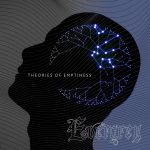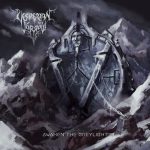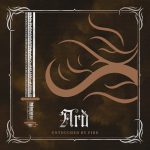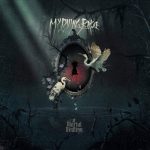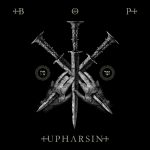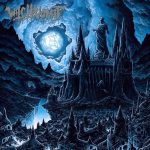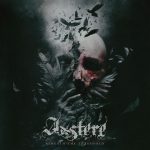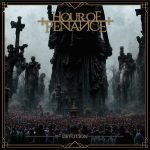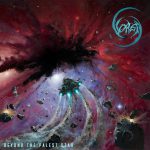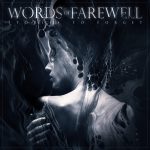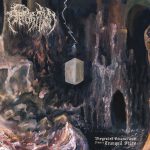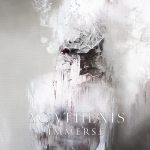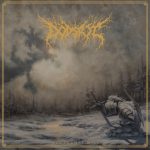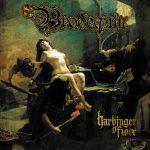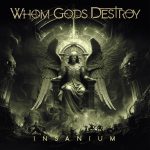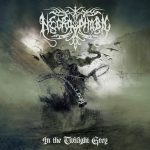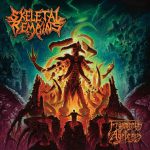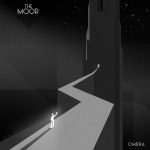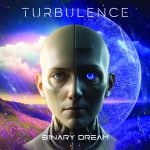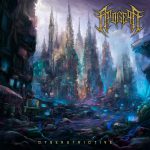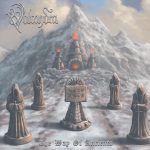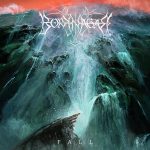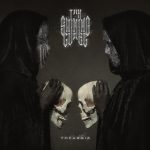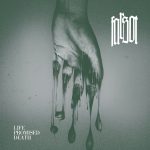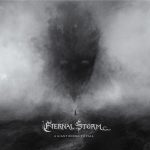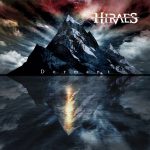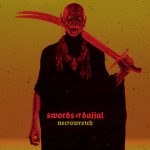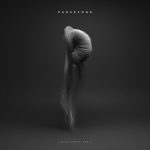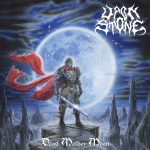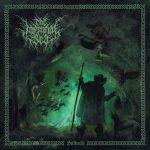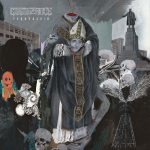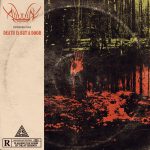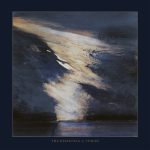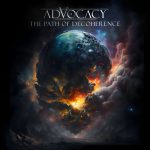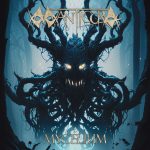Thy Shining Curse – Theurgia – Album Review
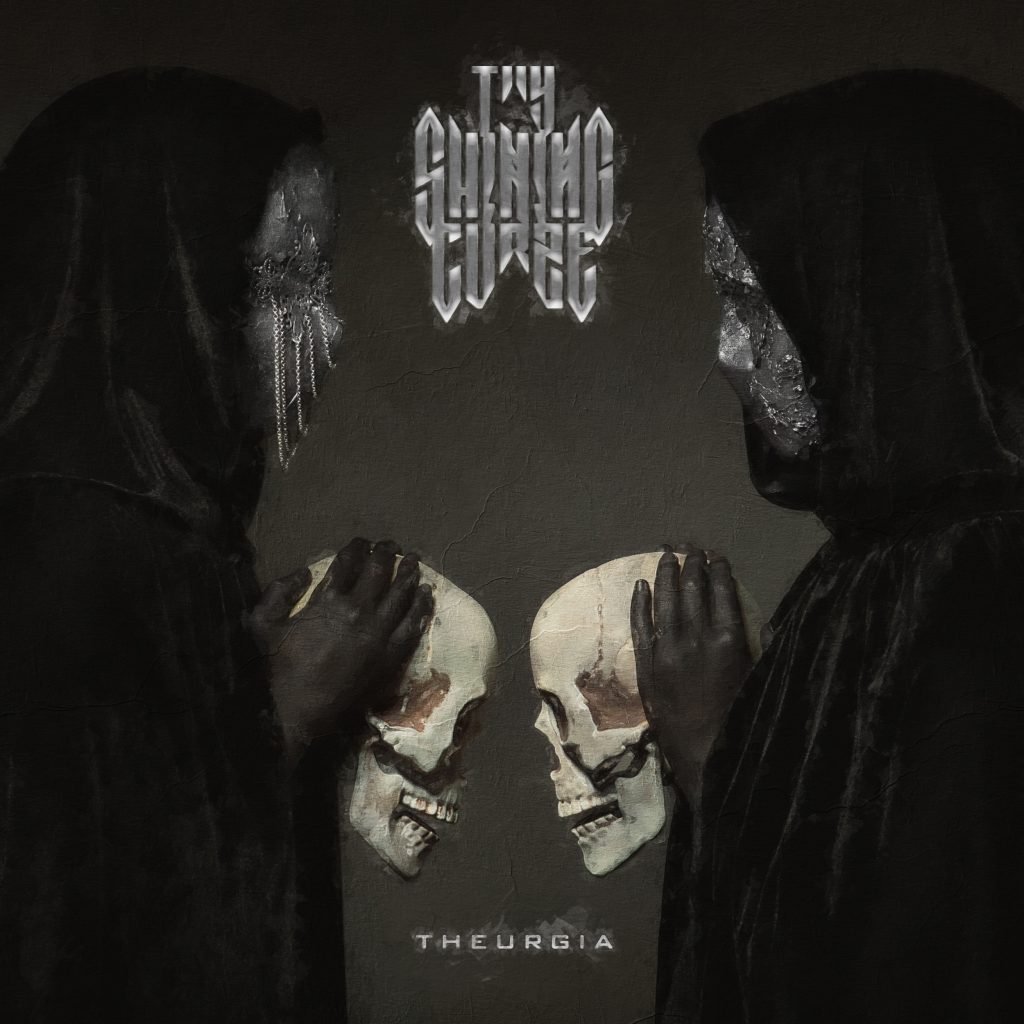
Artist: Thy Shining Curse
Album Title: Theurgia
Label: ViciSolum Productions
Date of Release: 16 February 2024
I seem to have reviewed a number of albums this year that are essentially one-man projects. Normally, these affairs turn up most frequently within the realm of black metal but in the case of Thy Shining Curse, the music of choice is predominantly symphonic death metal. And this debut album, ‘Theurgia’ comes from the mind and the handiwork of Pittsburgh, USA-based multi-instrumentalist Leonidas Diamantopoulos.
‘Theurgia’ is a Greek word, meaning ‘divine work’, so clearly our talented protagonist thinks highly of his first full-length creation. But not so, because the term ‘Theurgia’ in the context of this album refers more to the development of the word by the Neoplatonists . According to the press release, “It describes a series of magical acts that aim to connect the human soul to a hierarchy of superior beings, leading up to the supreme being or so-called, The One.” As a result, each of the seven tracks on this album explores the activities and rituals performed by mortals in an effort to get closer to divinity. Not content with creating a body of music all on his own, Diamantopoulos also wanted to make his debut a concept piece. That kind of ambition is impressive, it has to be said. But does the final output live up to the billing?
By and large, I have to say that it does, yes. I find a lot to enjoy when I listen to ‘Theurgia’. It helps that I’m an admirer of the symphonic death metal genre, though, and bands like Fleshgod Apocalypse, SepticFlesh, Ex Deo and Mayan. It is definitely clear where Thy Shining Curse have sought inspiration, as there are a lot of similarities to be heard with the aforementioned acts when listening to ‘Theurgia’. However, this is not necessarily a bad thing, especially when the thirty six minutes of music are as entertaining as this.
Things get off to a good start with the ubiquitous rousing intro that sees female operatic vocals soar across an initially dark, foreboding soundscape, albeit one that increases in drama and cinematic bravado as it nears its conclusion in double-quick time.
After a slight pause, a heavy, beefy guitar riff signals the arrival of the opening track proper, ‘Abyssaoth’ and instantly it’s good to note that this song has teeth to it. I’m not sure if the drumming is organic or programmed, although I lean towards the latter as it feels just a little too pristine. But this is quickly forgotten as strong orchestral embellishments are interwoven into the metallic framework. And then, the chorus hits and it is resplendent, subtly melodic, but bombastic and cinematic. Unfortunately, it’s at this point where the song takes a turn for the bizarre, as everything falls away to reveal a creepy, eerie avantgarde passage with a deliberately jarring saxophone cutting my ears in two. To be perfectly honest, the song did not need this weird and unnecessary interlude, and it nearly put me off listening to the record any further. Thankfully, the heaviness returns and the track ends on a high once again.
I’m actually glad I persevered with ‘Theurgia’ because there’s little or no evidence elsewhere of such odd happenings. There are a few twists and turns, but nothing of this ilk. In fact, for the remainder of the album, the music is really rather strong. ‘Aesahaettr’ is a brute of a track, with deep, down tuned guitar riffs, imposing symphonics, moments of quiet contemplation, and soaring female vocals over an alluring chorus. I’m not sure the breakdown chugging riff is entirely necessary, but the ensuing lead guitar solo definitely is.
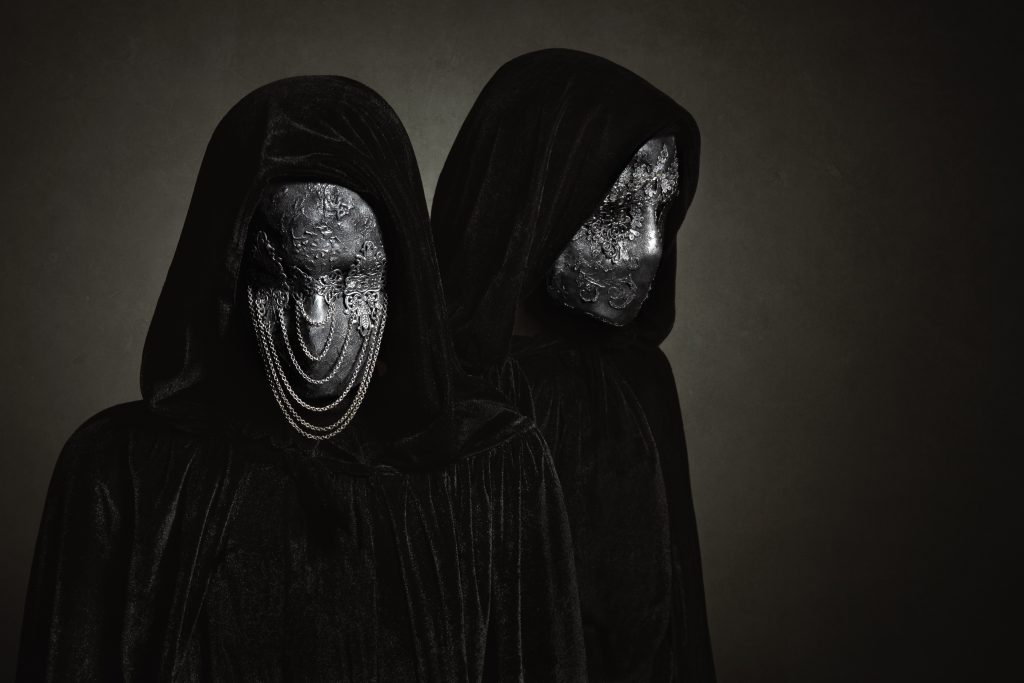
‘Acephale’ begins with a riff that borrows heavily from tech-death/djent environs but features a gorgeous sweeping and grandiose chorus where string arrangements create such a beautiful counterpoint to the otherwise dark and menacing approach.
The string arrangements also help to propel ‘Lenore’ along and elevate it to being a personal favourite. It’s a more immediate composition also, despite some intriguing vocal effects being used to add something a little different to the more standard gruff growl that features throughout. I like its pace, its power, but also its sense of the epic, as it bounds along with infectious energy and drive. Again, not content to sit still, the song does take a slight turn in the latter stages, but we get spoken-word samples that feel vaguely familiar – Moonspell, maybe – and some nice bass playing along the way, before the track ends with a reprise of the rousing string-led melodies.
The album then concludes with ‘Melmoth’, another hugely ambitious composition that starts off with bold orchestration before heading straight for slightly more progressive sounding extreme metal surroundings. It’s the perfect closing track, too, as it contains a little bit of everything, from sheer unadulterated cinematic bombast to moments of suspenseful minimalism, to a fantastically melodic chorus, possibly the strongest on the album. The lead guitar solo is pure exuberance, too, but it’s that bittersweet feeling that it invokes in me as the album draws to a close that has such a positive impact.
This was one of those records that I checked out when I was looking for new music to try, not expecting too much in the process. And yet, it ‘Theurgia’ has proven to be a great discovery, one that has brought enjoyment in greater amounts than I thought. If you are a fan of symphonic death metal, then I’d certainly have no hesitation in recommending Thy Shining Curse to you. It’s not perfect, but it is a lot of fun and has been a regular visitor to my recent playlist. I’m really looking forward to what comes next from Leonidas Diamantopoulos.
The Score of Much Metal: 85%






